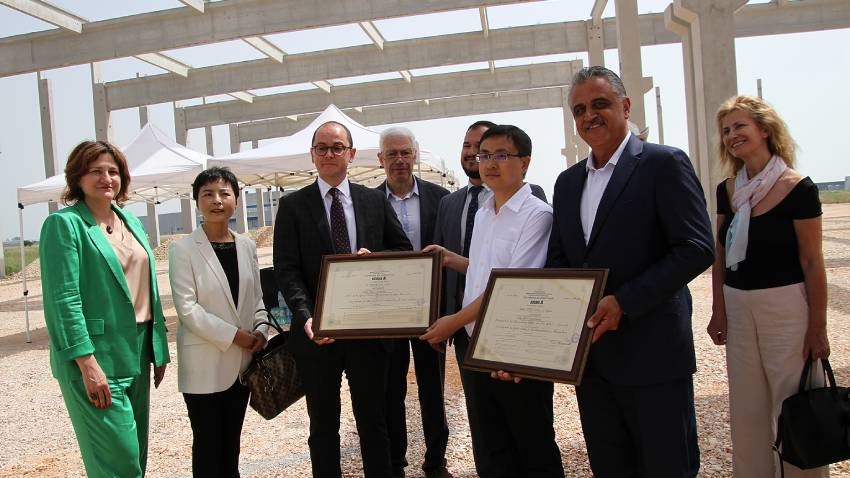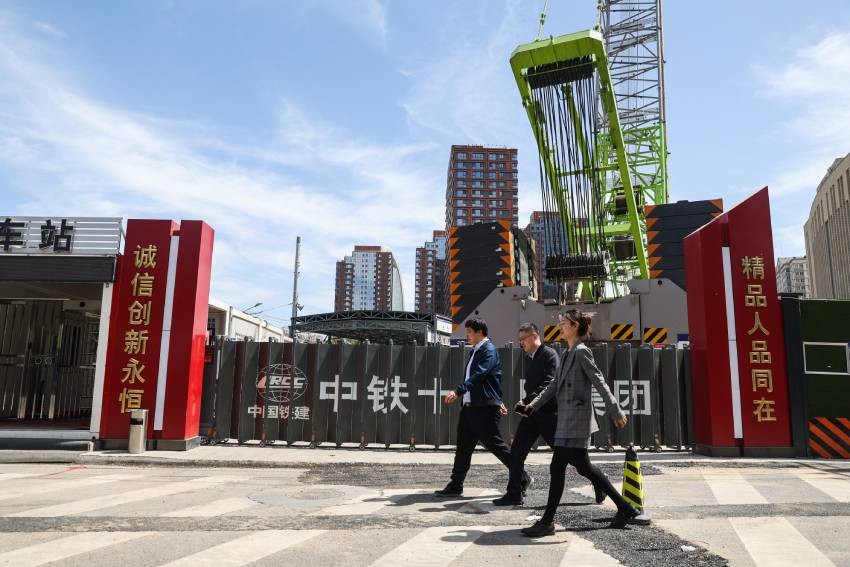
Bulgaria and China established diplomatic relations 75 years ago – in 1949. A year later, the People’s Republic of China and the People’s Republic of Bulgaria, as this country was then called, exchanged ambassadors, developing full-scale relations – agreements of cooperation were signed in culture, science, technologies, agriculture and trade. The friendly contacts between the two countries grew more and more frequent, and in 1952 the first trade agreement was concluded. Bulgaria exports to the People’s Republic of China medical equipment, medicines, electric forklifts, and imports tea, paper, silk, cotton and textile products. Today, even though they are following different paths of development, the cooperation between the two countries continues within the frameworks of the Belt and Road initiative, as well as the initiative China-Central and Eastern Europe 17+1. 
On the occasion of the anniversary of the establishment of diplomatic relations between Bulgaria and China, an exposition is being organized in this country of leading Chinese products and services, alongside a forum providing opportunities for bilateral meetings between representatives of businesses from the two countries. More than 60 companies operating in the sphere of information technologies, digitization, financial services, biotechnologies etc., will be presented at the National Palace of Culture in Sofia September 12-14.
“We have been making considerable efforts to enable businesses from the two countries to communicate. We used to have very good relations which were interrupted by Covid, and now we are endeavouring to get back to the previous levels of cooperation. We also want Bulgarian businesses to be given and to discover new opportunities in their relations with China,” says the ambassador of the People’s Republic of China to Bulgaria H.E. Ms. Dai Qingli in an interview with public service TV BNT.
In her words, Bulgaria is an excellent destination for Chinese investments:
“Taxes are low here and there are skilled workers. However, sometimes problems emerge connected with trade between China and the EU which affect the cooperation with Bulgaria. Last year there were promising projects the two countries could have been involved in, but the European Commission launched an investigation into Chinese companies which were unable to take part in the projects in question. Of course, we observe European requirements but there should be equality in the relations with the Chinese companies,” said H.E. Ms. Dai Qingli.
Cooperation with the countries of Central and Eastern Europe, including Bulgaria, is part of China’s new plan of development:
“China will continue to facilitate access to its market, opening up to the world, turning it into an attractive option for all countries around the world, including Bulgaria. In the period from 2015 until 2023 bilateral trade between China and Bulgaria went up by USD 1.8 billion, reaching USD 4.2 billion. Bulgaria is taking over from Poland as China’s biggest partner in trade in agricultural products in Central and Eastern Europe. Chinese investments in Bulgaria have made promising progress in the sphere of spare parts for cars, renewable energy, information and communications, agriculture, finance etc.”
“We hope to be able to avail ourselves of the 75th anniversary since the establishment of diplomatic relations between Bulgaria and China and deepen our practical cooperation further,” ambassador Dai Qingli says.
Translated and posted by Milena Daynova
Photos: BTA, BGNES
Bulgaria’s Ministry of Finance has published the draft state budget in euros for 2026. The country’s GDP is projected to reach EUR 120.1 billion, with an economic growth rate of 2.7%. Planned revenues amount to EUR 51.436 billion, or 42.8% of GDP...
In 2024, 8.2% of people aged 18 or over who declared to be at work (either employed or self-employed) in the EU were at risk of poverty, according to data from Eurostat, cited by the BNR's Horizont channel. In Bulgaria, this share reached 11.8%. The..
The two largest trade unions in Bulgaria - the Confederation of Independent Trade Unions in Bulgaria and the Confederation of Trade Unions "Podkrepa" - are organizing a warning protest in front of the Council of Ministers building. It is planned for..
The draft state budget was adopted in first reading by the National Assembly on November 21. However, the planned changes in the financial framework for..

+359 2 9336 661
